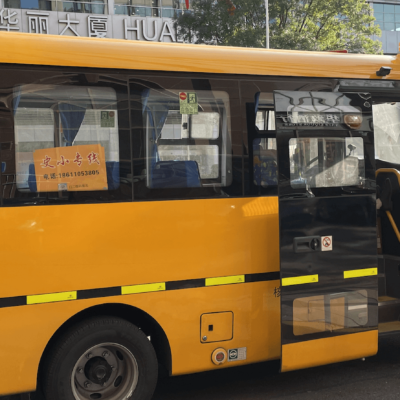It is hard to find in post-war American history a greater divide between two Presidential candidates on foreign policy than in 2020.
The Donald Trump-Joe Biden differences are globe-spanning and issue-spanning: climate change; multilateralism; trade; alliances; North Korea; Iran; Israel; the WHO … the list goes on and on. In stark terms, Trump’s foreign policy instincts are driven by a visceral reaction against pretty much everything that Biden—a long time chair of the Senate Foreign Relations Committee—stands for: the bipartisan tradition of liberal internationalism in American foreign policy. Biden, having watched four years of Trump’s foreign policy with horror, is himself driven to plan his foreign policy from a visceral repudiation of pretty much everything Trump believes and stands for. The polarising logic between the two foreign policy approaches is deep and personal, and also driven by very different conceptions of America’s role in the world—a divide that goes back to the earliest days of the Republic and has recurred at regular points in its history.
Biden is the custodian of one of the oldest beliefs in the American political tradition, that the United States is a grand experiment whose wealth and power are testament to the eternal truth of its values. The responsibility that comes with its wealth and power is leadership – the word that has most characterised Biden’s outlines of his foreign policy platform. For Biden there can be no American greatness without American leadership; an America that doesn’t lead cannot by definition be great.
Trump’s views draw on a different conception of the United States, as a society of people who removed themselves from the grubby politics and rivalries of the old world. The danger for American values and institutions is corruption by becoming entangled with those rivalries and tawdry dealings again. For Trump, America can only become great again if it exits all the deals and institutions that his misguided predecessors have allowed the US to be dragged into: multilateral bodies; alliances; free trade agreements. The liberal internationalist belief in American leadership is for Trump a form of false consciousness that has allowed other countries to exploit, undermine and weaken America. Trump’s instincts are to put America first at all times, with little care for the consequences for neighbours, allies and partners.
The simple answer to the question of what the outcome of the 3 November election will be for Asia is at one level obvious. If Trump wins, we get four more years of the same: erratic attention and engagement; a focus on deal-making summits; pressure on allies to pay more; and an eschewing of regional trade deals in favour of bilateral deals in America’s favour. If Biden wins, we can expect a return to a pre-Trump American foreign policy: liberal-internationalist; respectful and collaborative with allies; firm with dictators; broadly regionalist.
But not so fast. In international affairs, the devil is in the detail. And details can confound the President of the United States, even if he has strong views. Here’s some complications for both candidates in Asia.
China
There’s one big exception to the polar divide between Trump’s and Biden’s foreign policy positions: China. On China, the positions of the two candidates are almost indistinguishable, reflecting the growing bipartisan consensus on this issue in the United States. Trump has grabbed headlines through his bombastic trade war and bizarre pronouncements about the “China virus”, but the broad trajectory of growing American hostility to China predates the Trump administration. Anger at Beijing’s trade and monetary policy, alarm at its foreign policy, scepticism about its compliance with international rules, and suspicion about its espionage activities had been growing for at least a decade by the time Trump reached the Oval Office.
Complications lie ahead in handling China for whomever wins the White House. Trump’s aggressive approach—and that of Secretary of State Mike Pompeo who is increasingly seeming to push for regime change in Beijing—will be fraught with difficulties. Most obviously, it’s not working. Trump’s muscular stance has achieved little more than minor trade concessions. China’s President Xi Jinping has not resiled from any of the behaviours that the US finds most concerning—galloping authoritarianism at home and prickly assertiveness abroad. Second, China’s is the major economy likely to be least damaged by the COVID crisis, while America’s will be in deep trouble. Will Trump’s trade war approach be possible as the American economy struggles to grow out of a deep depression? Third, the problem of North Korea is worsening as Pyongyang forges ahead with its nuclear and missile programs, despite Trump’s promise of a deal. If he needs to return to the deal table, Beijing will be a vital partner.
Biden’s China policy is beset with a deep contradiction: despite vowing a more pragmatic relationship with Beijing, he wants to pressure behaviour change from China by leveraging US leadership among democracies. A pragmatic objective pursued with ideological means. Furthermore, many of these candidate democracies and quasi-democracies have shown little interest in confronting China. Japan, Singapore and Indonesia, and even Australia, have shown clear unwillingness to join Trump’s and Pompeo’s rhetorical attacks on Beijing. Biden’s hope that this is because it’s Trump who is making them and not for hard pragmatic reasons is a triumph of hope over experience.
Regionalism
Asia’s distinctive form of regionalism had been at risk of atrophy even before America’s 45th President was inaugurated. While the annual round of summits and their preparatory meetings continue, the substance discussed and the agreements reached look increasingly threadbare and divorced from the actual challenges threatening the region. A case in point is the much promised Code of Conduct between ASEAN and China on the South China Sea, which has sputtered along at pre-negotiation stage while legal claims and counter-claims are made and aircraft carriers face off in those troubled waters.
Trump’s arrival and boorish behaviour led to an expectation that with trust in America waning, Asian regionalism would tighten. It hasn’t. The high point of without-America regionalism was probably the signing of the Comprehensive and Progressive Agreement for the Trans-Pacific Partnership (CPATPP) in December 2018.
Can Trump afford to be as dismissive of Asia’s regionalism in his second term as in his first? There are reasons for doubt. The first is the long-standing fear that if America stays aloof, its leadership role will be taken by China. In many ways, Trump’s behaviour has added weight to Xi’s argument for Asian security to be provided by Asians. China’s case for regional leadership is based on claims that the US is undependable, the undermining of regional institutions, and its own interests at heart. Beijing couldn’t have had a better example of this than Trump. Another reason Trump may need to take Asian regionalism more seriously is the South China Sea. Simply playing naval brinkmanship games is not deterring China, and an ASEAN acquiescence to Beijing’s claims would be a serious strategic setback for the US. Providing reassurance through regional bodies may become increasingly important.
Biden’s hope is to return to the status quo ante—foreign policy before Trump. One big symbolic gesture would be to sign on to the CPATPP. But rejoining will not be as easy as Trump’s pull-out. The agreement exists on top of a complex web of hard-negotiated bilateral agreements, with US negotiators often doing the hardest bargaining. Will the members of CPATPP really have the stomach to open up the agreement to more hard bargaining by Washington’s trade envoys? Then there is the issue of restoring American credibility in Asia, which was already waning before Trump came to power. The decision of the administration of former President Barak Obama in 2012 not to support the Philippines in its stand-off with China over the Mischief Reef dealt a major blow to trust in US resolve to face down China, especially among Southeast Asian countries. This, topped with four years of Trump’s erratic foreign policy, has seen nations across the Indo-Pacific looking for other ways to shore up their security against a rising China. Arms imports have jumped, along with security collaboration between hitherto distant partners: Japan, Vietnam, Indonesia, Singapore, India, Australia. The task for Biden in reversing this tide and placing America once more in the lead is enormous.
Allies
Perhaps no policy framework is more definitive of post-war American foreign policy than a global network of alliances. Deep and stable security agreements with dozens of countries helped the US wage the Cold War and, after the Soviet Union’s collapse, to stabilise a globalising world while maintaining US leadership. America’s most consequential alliances outside of Europe are in Asia, buttressing stability and development in the world’s most dynamic region. Which is why this century’s revisionist powers have been so eager to weaken US alliances as a way of weakening the US itself. Luckily for them, all three twenty-first century occupants of the White House have given them a helping hand.
No wonder then that Biden has placed alliances at the centre of his foreign policy platform. For Biden, alliances form the frameworks that will allow the reassertion of American leadership, because he believes allies are the countries that are most accepting of American values and leadership, and form the basis of a values-based coalition with America in the lead. The bad news for Biden is that if he wins, he will inherit a deficit of trust at the heart of many of America’s most important alliances. The three administrations previous to his—Bush, Obama and Trump—have tended to treat allies in ways that have weakened their value in the eyes of their leaders and publics alike. Bush rounded on allies that refused to back his invasion of Iraq, effectively sending the message that the equation had shifted for allies under unipolarity: alliance now meant unquestioning loyalty. Obama treated allies with cold formality, leaving much of the heavy lifting of alliance maintenance to Biden and his Secretaries of State. And Trump has accused allies of being at the head of the queue when it comes to ripping off America.
It is hard to imagine a second-term Trump dramatically changing his views of or behaviour towards allies. Japan and South Korea have borne the brunt of his hectoring and threats, and largely have managed to navigate his first term. But their dependence on America is a wasting asset, which is problematic for a President who would want to use that dependence as leverage to strike better trade deals with them. Or for his Secretary of State who seems hell bent on getting other countries to isolate China.
In international affairs, as in life, you can never step into the same river twice. The world each President confronts on winning an election and taking office is by definition different from the world that confronted his predecessor. This is particularly the case in 2020, given the radical disjuncture of the Trump presidency. The two regions of pre-eminent importance to the US during the Cold War, Europe and Asia, have accelerated their movement out of America’s sphere of influence over the past four years. Comfort in the US presence and leadership has been shredded; self-reliance and pragmatism has replaced it.
The US is more needed but less trusted in Asia in 2020 than it was in 2016. What America and Asia needed was a Presidential candidate who understood this and adjusted US Asia policy accordingly. Instead, it has to choose between two candidates who have different but equally outdated views of the US role in the region. Asia’s strategic currents are flowing quickly and unpredictably; Trump or Biden need to come to terms with this quickly, or we face another untidy four years.
A shorter version of this article was co-published with the South China Morning Post and cannot be republished without the permission of the South China Morning Post.
Image: President Xi in Beijing, 2016. Credit: US Department of State/Flickr (the image has been cropped)




